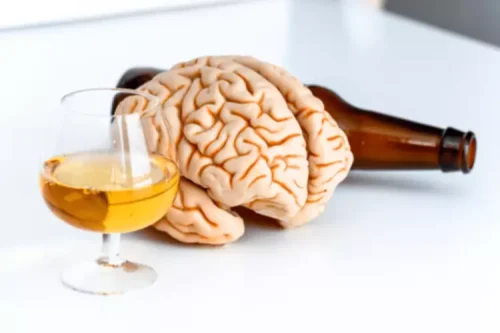
As drinking alcohol can lower inhibitions, it’s also more likely that teenagers might engage in risky behaviour and can result in things like getting into fights, drink-driving or having unprotected sex. For teenagers that do drink – it’s important to understand that alcohol has serious effects on their health and development. Early education and awareness programs are our first line of defense.

Alcohol Overdose
Adverse childhood experiences (ACEs) such as abuse, neglect, or witnessing violence can leave deep scars. These experiences can rewire the brain, making individuals more susceptible to addictive behaviors as a way to cope with their pain. High-stress academic settings, bullying, or a lack of engaging extracurricular activities can all push teens towards addictive behaviors as a form of escape or coping mechanism. Perhaps most insidious of all is the misuse of prescription drugs.
Speed and alcohol believed to be factors

This suggests that heavy alcohol use initiation and continuation may have a cumulative effect on brain activity, and anomalous activity may reflect degradation of underlying attentional and executive functioninging mechanisms. Heavy drinkers may therefore require more executive cognitive control to perform at the same level as non-users. Launched in 2012, this five-site consortium recruited a community cohort of 831 diverse adolescents ages 12 to 21 from five U.S. regions (Durham, North Carolina; Palo Alto, California; Pittsburgh, Pennsylvania; Portland, Oregon; and San Diego, California). Half the sample was enriched for key characteristics conveying risk for heavy drinking among adolescents (i.e., family history of substance use disorder, youth externalizing or internalizing symptoms, and having tried alcohol by age 14).
Here is what the parents of teens can and should do:
- However, if you’re noticing multiple red flags or drastic changes in your teen’s behavior, it’s worth taking a closer look.
- According to the Center on Alcohol Marketing and Youth, 5,000 people 21 and under die from alcohol-related injuries, including homicide and suicide, every year, and an additional 600,000 students were injured due to alcohol abuse.
- At the same time, make sure that you reassure your teen that you love them and that you want to help.
- Alcohol is the most commonly abused substance among teens, but rates of nicotine and prescription medication abuse are increasing.
The Trevor Project is a leading national organization that provides crisis intervention and suicide prevention services to lesbian, gay, bisexual, transgender, queer, and questioning youth. Sian Ferguson is a freelance health and cannabis writer based in Cape Town, South Africa. She’s passionate about empowering readers to take care of their mental and physical health through science-based, empathetically delivered information. If you’re worried about your teen using alcohol, it may be tempting to take an extremely strict approach or overemphasize the risks of alcohol use.

- These experiences can rewire the brain, making individuals more susceptible to addictive behaviors as a way to cope with their pain.
- If you are not able to keep the line of communication open with your teen, talk to their healthcare provider.
- Injecting drugs with shared needles increases the risk of contracting HIV, hepatitis B, and hepatitis C.
- You and your community can take steps to improve everyone’s health and quality of life.
- For more information about alcohol’s effects on the body, please see the NIAAA Interactive Body.
Additionally, a greater understanding of short compared to longer-term neural and cognitive effects of alcohol use and remittance in adolescence through to adulthood is needed to better inform treatment. Researchers are starting to track these changes in short and longer-term effects using neural markers of substance use to better understand how an individual is responding to treatment (143). Targeting cognitive makers of substance use through cognitive retraining treatment strategies has demonstrated some success in reducing alcohol use (144), as well as in a range of clinical populations including various substance use disorders (145).
Why Do Teens Drink?
Teenagers who misuse substances can experience drug dependence (substance use disorder). Developmentally, adolescents are at the highest https://ecosoberhouse.com/ risk for drug dependence and severe addiction. While drug use can lead to mental health disorders, sometimes it’s the other way around.
How to talk to your teenager about alcohol

Providers can guide parents and concerned teens to the right facility with adolescent treatment programs and cutting-edge therapies. Human research is limited to natural observational studies which have typically assessed youth into early adulthood at the latest. Therefore, animal studies can provide helpful insight into knowledge gaps from human literature on consequences of adolescent alcohol use.
Top Alcohol and Teens Related Articles
Teens may use substances to self-medicate or numb emotional pain. It can be hard to know what to do if your child has a drinking problem. Those problems can include needing more alcohol to get intoxicated (tolerance), difficulties that occur when the effects of alcohol wear off (withdrawal), using more alcohol or teenage alcoholism for a longer time than intended, and other life problems because of the use of alcohol. Although binge drinking can have negative health consequences, not all people who binge drink are necessarily addicted to alcohol. As adolescents mature, they undergo complex developmental changes, especially in their brains.
The crash caused the Dodge to become airborne and crash into a storefront. Police said the vehicle was so heavily damaged that they were unable to tell if anyone was wearing a seatbelt at the time. The NHS website has more advice on talking to your child about alcohol.

